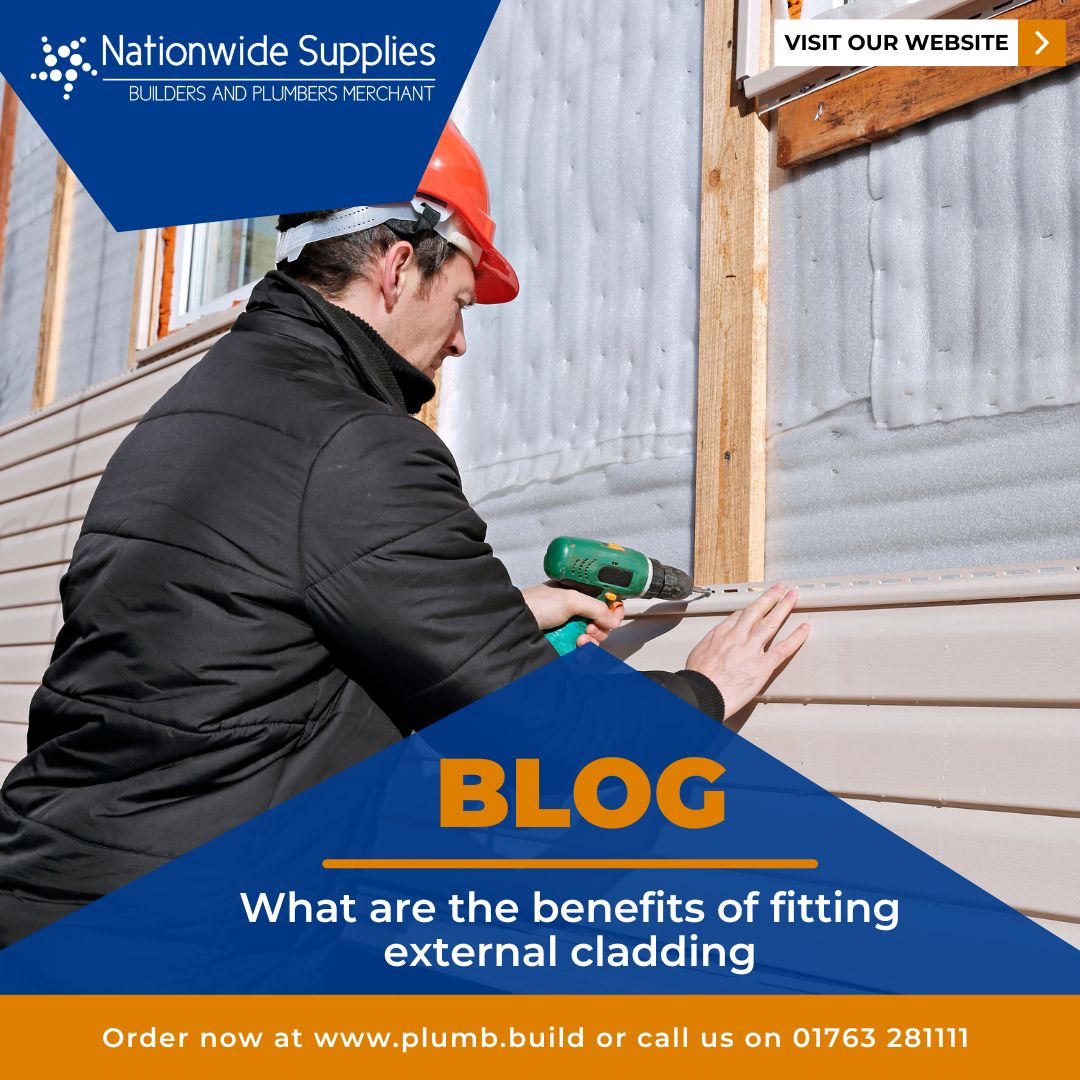Posted: 23rd November 2023 | Author: Jamie Brown | Category: Cladding
Back to news
If you’re thinking about fitting cladding on your house’s exterior walls, it can be helpful to understand the implications of the job. Finding out how much it would cost to hire builders, buy materials and cover overheads is one thing, but you’ll also want to consider the benefits of having cladding in the long run.
Below, we run through four key factors that may benefit you if you were to install exterior cladding. These are:
When you fit cladding on your home’s exterior walls, it acts as a sort of second skin - another barrier heat must pass through in order to leave your home. Whether you choose uPVC, composite or timber cladding, exterior cladding can help to insulate your home and in turn cut down on your energy bills in the long term.
However, not all materials have the same insulatory capacity, so it’s worth doing your research to find out which type of cladding will have the biggest impact if insulation concerns you. And if your cladding of choice isn’t quite as good an insulator as you expected, there are additional measures you can take in conjunction with cladding to reduce heat loss.
For instance, you may be able to install a layer of external insulation between your home’s exterior walls and the cladding. This is one way to boost insulation without making your home look unsightly.
If you’re looking for a fit-and-forget solution, cladding can be a good option compared to painted walls. It all depends on the type of material you choose, as some require more upkeep than others. As an example, metal cladding rarely requires much more than an annual clean and can last for decades - but it’s not to everyone’s aesthetic tastes. On the other hand, timber cladding is often considered more attractive, but may require regular stains or treatments to keep it in good condition while exposed to the elements.
As well as thinking about how much maintenance is needed, it’s important to consider what kind of work that will entail. Is it something you can do on your day off, or will you need to hire a specialist? For instance, timber cladding may require a preservative treatment after being in place for a number of years, whereas uPVC may need more frequent yet less specialist cleaning using a pressure washer. However, uPVC cladding may need to be replaced slightly more frequently as it is more susceptible to damage from UV light compared to timber.
It’s a good idea to get a comprehensive idea of the type and extent of maintenance required for your cladding type of choice before you start the job so that you don’t run into unexpected costs further down the line.
It’s also worth thinking into the future. You might be happy enough to climb up a ladder once a year to clean your cladding now, but what about in 10 or 20 years? It can be prudent to assume you’ll have to hire someone to do tasks such as this when you’re considering the costs and benefits of your choice.
While the physical attractiveness of your property might not be your number one concern, it can be a big factor in the decision of whether or not to have cladding installed. Some people find the uniformity associated with painted walls to be unappealing, especially if it’s also paired with difficult maintenance or high costs.
Cladding, however, has the benefit of there being multiple types available. If you’re into a naturalistic aesthetic, then timber cladding might be the right choice for you. For something gleaming and shiny, metal cladding could be the way to go, whereas uPVC cladding is an option available in a wide range of colours and styles to suit almost any preference.
In the end, aesthetic value is highly subjective, so it’s up to you to decide whether there is a suitable cladding option out there for you. It’s worth noting, however, that aesthetics can have a big impact on saleability should you wish to sell your property. Choosing a style that is appealing to a wider range of people might mean you can command a higher asking price.
Finally, it’s worth considering whether or not cladding protects your property against the elements. The external walls of your home protect the interior in all weather conditions, whether it’s bright and sunny or windy and rainy. Over time, these conditions can damage your property. For instance, rainwater that leaks inside through the external walls may cause damp problems that can be costly to solve.
By forming a layer similar to armour around the external walls, cladding can help to keep the worst of the wind and the rain off your property, which may help with some damp problems. It’s not a guarantee that you’ll never have damp issues - especially since some problems like rising damp start elsewhere rather than in the external walls - but it can reduce the likelihood of them. To properly understand how cladding could affect your property, it’s best to consult a surveyor or similar expert.
Back to news
The Author: Jamie Brown
From my early working life as a labourer, then becoming a builder and a property developer, I have been buying and using building materials for over 25 years. I set about to start a builders merchant which can offer high-quality products and significant savings along with speedy delivery to keep your sites moving. Still having a foot in the construction industry on my own property, I always make sure the products we sell are up to our high standards which is important for us to keep a great image for the company and superior reputation to supply quality!